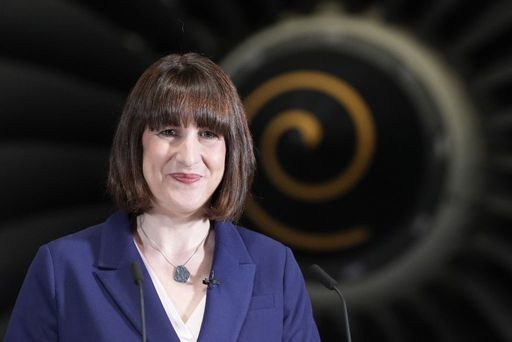Speaking to business leaders in the East Midlands this morning, Rachel Reeves delivered a fairly uncontroversial speech. In her first major address since the election was called last week, the shadow chancellor insisted that Labour is the ‘natural party of British business’ (a point bolstered by today’s letter signed by over 100 business chiefs endorsing Labour). She said she wanted ‘to lead the most pro-growth, pro-business Treasury our country has ever seen’ – who could argue with that? She then went on to restate her commitment to fiscal discipline and a promise to make the numbers add up.
While the dig at free markets won’t have been everyone’s cup of tea, it was an inoffensive speech, largely because it lacked any details about these ‘pro-growth, pro-business’ policies which might lead to some debate on their merits. But the Q&A was much more enlightening.
This was always going to be one of the toughest questions put to Labour
While we didn’t get many specifics about Labour’s business plans, we did get another update about Labour’s tax plans. When asked about what other tax rises might be needed to fund Labour’s spending and investment pledges, Reeves stated that ‘there are no additional tax rises needed beyond the ones that I’ve set out’.
Reeves went on to name that list: a bigger windfall tax, charging VAT on private school fees, changes to the non-dom tax code and private equity bonuses – all of which have already been announced. ‘Those are the sum of the tax changes that we are bringing in,’ Reeves concluded. It was the closest the shadow chancellor has come so far to directly ruling out more taxes: not just ‘rises’ but ‘changes’, too, which could be interpreted to include new taxes as well.
Today’s comments were far more inclusive and clear than the shadow chancellor’s answer on BBC One this Sunday. Reeves confidently ruled out increases to income tax or National Insurance (again, pledges already made) but was far more hesitant to say where the money would come from to make good on the party’s pledges – apart from repeated promises to grow the economy.
Meanwhile Keir Stamer has also been suggesting that Labour is done with announcing tax rises, while still trying to avoid a firm ‘yes’ or ‘no’ answer. When pressed on his tax plans yesterday, Starmer insisted, ‘We've drawn up our plans. They'll be in our manifesto and you will soon see them..I can tell you this in advance, that none of the plans that we've drawn up, nothing in our manifesto, is going to require us to raise taxes.’
It’s a bold game for Labour to play: implying the tax-hiking part of their agenda is set and settled, while clearly trying to keep some flexibility to raise revenue. Starmer’s comments leave plenty of outstanding questions – what about changes to tax relief, or perhaps the implementation of a new tax? – but they come across as a pledge not to go any further than what’s already been announced. It’s not just the one-off comments, but repeated suggestions of a tax cap from senior figures in the party that are creating the sense of a more concrete answer.
This was always going to be one of the toughest questions put to Labour. Categorically ruling out more tax hikes forces the party to say what they will opt for instead (spending, borrowing?) to find the cash. Keep it all vague risks public concern that a cash grab is coming.
It seems Labour is moving in the direction of the former, knowing full well that once they commit to capping tax, it will be political mayhem trying to revert back. Either way, we may not know the full details of how Reeves really will make the sums add up for some time. Asked this morning about the possibility of her own mini-Budget soon after the election, Reeves noted that she has ‘been really clear, I would not deliver a fiscal event without an OBR forecast’ – a process which takes about ten weeks. This suggests Reeves will follow the more traditional schedule and wait to announce her big changes in an Autumn Statement.








Comments